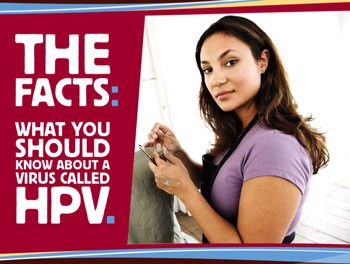
Pap Smears and the HPV Vaccine – great news for women
Following the introduction of the cervical cancer vaccine program we have seen a dramatic decrease in the number of abnormal PAP smears for young vaccinated women. This vaccine was developed in Queensland by Professor Ian Fraser and is now being used to protect young women all over the world. The vaccine is given at school to year 8 students (boys and girls).
The latest statistics report that nearly 70% of women under 25 years are now fully immunized in Queensland. It is really important to complete the vaccination course in order to have proper protection. Immunisations rates are rising with 82% of 14-15 year old girls receiving their first immunisation but only 72% receiving all 3 vaccines.
The decrease in abnormal PAP smears in young women who have been vaccinated is an amazing 46%! Increasing the vaccination rates in school children will give more young women lifelong protection against cancer of the cervix.
In vaccinating boys we will further protect women against infection and possible cancer as it is estimated that about 80% of the non vaccinated population will get HPV infection. The infection is silent until it causes cancer.
Research has shown that vaccinating boys is an important step in protecting women against HPV infection and cervical cancer. Up to 80% of the non-vaccinated population will get HPV infection.
The cervical cancer vaccine is given over 6 months with 3 doses to protect against HPV which is the cause of cancer of the cervix (and some other less common cancers) and also prevents genital warts.
You can arrange with your GP to catch up on a missed dose of the Gardisil vaccine.
Fast Facts
- HPV is the name for a group of viruses which can cause genital warts, cancer of the cervix and vulva, penile and anal cancers and some mouth and throat cancers
- Infection with the virus is very common with over 80% of people who have ever been sexually active will have a HPV infection at some time in their lives
- There are 40 different virus subtypes of HPV which can cause infection in the genital area and the vaccine is able to cover the 4 most common virus types which cause 70% of the cancer and 90% of the genital warts
- In most cases the infection is silent and short lived and most people do not ever know they have had the infection. Most infections will clear naturally in 1-2 years
- There is no treatment for HPV infection only treatment for the abnormalities caused by the infection such as abnormal PAP or genital warts. So vaccination is essential for protection against HPV
- Vaccination is highly effective if the full course of vaccination is given
- Regular PAP smears are still required even if women have had the vaccine because of the small chance of developing abnormalities because of the other virus types not covered by the vaccine
- There will be some good news for women in 2016 when it is expected that the PAP smear system will change so the PAP test will look for signs of HPV and women without those changes will be able to have PAP tests only every 5 years!
For further information on HPV school vaccination program click here.
For articles on a Queensland study that shows HPV vaccine reducing cervical cancer risk clinic here.
If you would like to discuss any aspects of the HPV vaccine or pap smears with a doctor, call 3257 0841 to make an appointment. For more information on our women’s health clinic, visit: Doctors @ Teneriffe Women’s Health Clinic.
 Dr Fiona McGrath
Dr Fiona McGrath
MBBS Dip RANZCOG
Dr. Fiona has a Diploma of the Royal Australian and New Zealand Obstetrician and Gynaecologist and has special interests in all things women’s health from birth to beyond.


